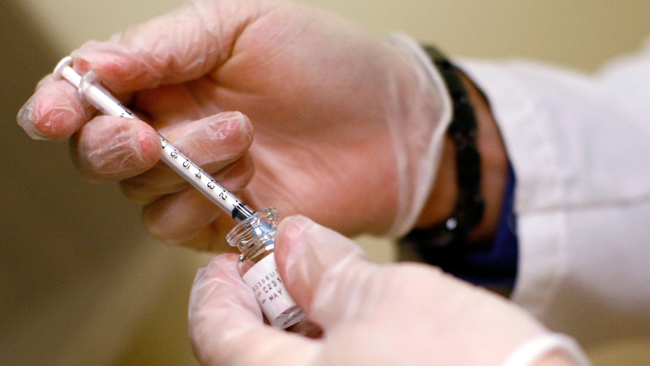For the first time since being accused of murder by the family of Rebecca Zahau after her death seven years ago, Adam Shacknai's side of the story was heard in a San Diego courtroom.
Shacknai testified in the wrongful death trial Monday in front of a packed room.
His testimony started with a description of how he found Zahau's body on July 13, 2011 -- naked, bound and hanged from a balcony at the Spreckels mansion in Coronado, the home of her boyfriend Jonah Shacknai, Adam's brother.
Shacknai said he cut Zahau's body down immediately after calling 911. A recording of the emergency call was played in court.
The discovery came just a few days after Jonah's son was injured in an accident at the mansion. The boy later died from his injuries.
The medical examiner ruled Zahau's death a suicide, but her family alleges that her boyfriend's brother, Adam, was responsible. Zahau's family is suing Adam Shacknai for $10 million.
A cryptic message painted on the door above the location where the victim's body was discovered has one of the focal points of the trial.
A handwriting expert examined the message, looking at individual letters and comparing them to both Zahau and Adam Shacknai's handwriting. The expert testified that based on his analysis, he believes with a degree of certainty that the writing on the wall was more than likely painted by Adam Shacknai.
But Adam Shacknai's attorney David Elsberg maintained it was a suicide message painted by Zahau herself. He strongly challenged the expert's opinion and criticized his technique.
"You changed the resolution on the handwriting, and you changed the handwriting, and you did all that before you did your comparison, correct?" Elsberg said.
The expert acknowledged making some changes using Photoshop but insisted the process is widely accepted and endorsed by his profession. He said the alterations did not distort his findings.
Local
Also testifying Monday was forensic Specialist Lisa Dimeo, a former San Diego County Sheriff's Department deputy and Crime Lab Analyst. In her testimony, she described inadequacies she noticed within the crime lab while she worked there in the '90s.
"People would believe anything with my name on it. Like just make this case go away whatever you can do," Dimeo said. "So it wasn't just go away, dismissed. It was make the evidence for the state more powerful so the accused would lose the case."
Dimeo said she doesn't believe any of the evidence was mishandled in this case, but she disagrees with the Sheriff Department's conclusion that Zahau's death was a suicide.
Meanwhile, the defense focused on Dimeo's lawsuit against the sheriff's office, casting doubt on her motives to take on this particular case.
Officer Marc Langlais of the Coronado Police Department went to the scene of the mansion during the morning of Zahau's death. But he said that it wasn't the first time he'd responded to calls there.
"Well, she obviously was dealing with an incident that just occurred," Langlais said.
When the son of Zahau's boyfriend took a fatal fall at the same house in July 2011, he was one of the officers who responded. Just a few days later, he returned to the mansion on July 12 to find Zahau dead.
Now Zahau's family is suing Adam for her death. He was the first person to discover the body and removed her from the balcony before calling 911 to report a suicide.
Zahau's family sued to have the case reopened in 2013. The family said drops of blood and fingerprints offer evidence that point to murder and not suicide on Thursday.
A large chef's knife found in the guest bedroom of Spreckels Mansion has Zahau's fingerprints on both sides of the blade but none on the wooden handle.
There is no criminal case. The San Diego Sheriff’s Department has been adamant, that after a thorough investigation, Zahau’s death was ruled a suicide.



